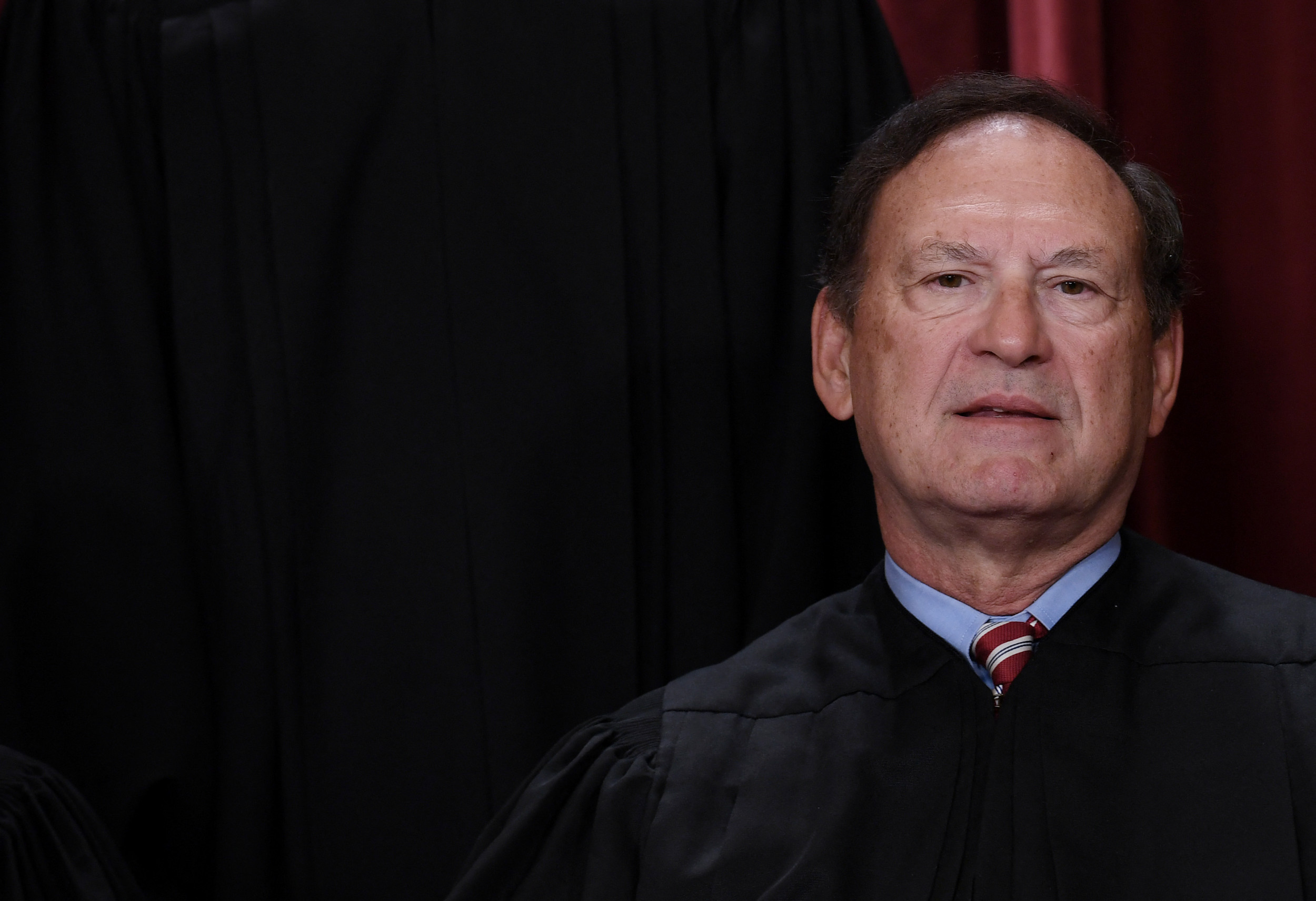Student protesters at Columbia University are refusing to back down, taking over a building on the campus in the latest escalation of demonstrations against the Israel-Hamas war.
On Monday, students defied a 2 p.m. deadline to leave a pro-Palestinian protest encampment on the university's campus after negotiations between university officials and the protesters broke down.
The university issued a notice to those in the encampment saying if they left by the deadline and signed a form committing to abide by university policies through June 2025, they could finish the semester in good standing. If they did not, they would be suspended pending further investigation.
In a show of their determination to not back down, student protesters defaced the notices with comments written in red marker, including "Columbia will burn," "Suspension for Gaza is the highest honor!" and "I ain't reading all that Free Palestine," according to posts on social media.
At Columbia, the 2pm notice to clear the encampment has passed. Students have been taping or pinning defaced notices for alternative resolution to themselves as they remain. pic.twitter.com/3hDiFPsJ4m
— Emily Muller (@emilygmuller) April 29, 2024
Hundreds of protesters remained after the 2 p.m. deadline passed on Monday, and Columbia later said it had started suspending students.
Then in the early hours of Tuesday morning, at least a dozen protesters occupied Hamilton Hall, one of several buildings that was occupied during a civil rights and anti-Vietnam War protest on the campus in 1968.
"An autonomous group reclaimed Hind's Hall, previously known as "Hamilton Hall," in honor of Hind Rajab, a Gazan martyr murdered at the hands of the genocidal Israeli state at the age of six years old," Columbia University Apartheid Divest (CUAD), the group behind the encampment, said in a statement posted on X, formerly Twitter, early Tuesday.

The statement added: "This university repeatedly endangers its students by instituting a police state with military-style checkpoints, repressing and isolating students on campus, calling armed riot cops for the largest mass arrests on campus since 1968, and weaponizing food insecurity and houselessness as leverage in negotiations.
"Columbia has forced protesters to escalate by contributing to a genocide while refusing to follow baseline standards of conduct that make negotiation possible."
The protesters said they intend to remain in the building "until Columbia concedes to CUAD's three demands: divestment, financial transparency and amnesty."
CUAD has been contacted for comment via email.
Columbia University President Minouche Shafik said on Monday that while the university "will not divest from Israel," it had offered to develop an "expedited timeline for review of new proposals from the students by the Advisory Committee for Socially Responsible Investing."
Columbia has urged staff and students to stay away from the campus.
"The safety of every single member of this community is paramount," university spokesperson Ben Chang told Newsweek in an email. "The first step we have taken is to alert our campus community—in light of the protest activity, we have asked members of the University community who can avoid coming to the Morningside campus to do so; essential personnel should report to work according to university policy."
Chang added that access has been limited to students residing in residential buildings on campus and essential employees.
The student protesters in their statement warned the university against calling in law enforcement to clear them out.
"To Columbia's administrators and trustees: do not incite another Kent or Jackson State by bringing soldiers and police officers with weapons onto our campus," they said, referring to incidents when police and National Guardsmen killed student protesters at two universities in 1970. "Students' blood will be on your hands."
Student protests have roiled college campuses across the country in recent weeks, with encampments popping up at universities nationwide since more than 100 demonstrators were arrested at Columbia on April 18 after university officials called in police to clear a "Gaza Solidarity Encampment" that students set up.
The students are calling for their universities to cut financial ties with Israel and divest from companies they say are enabling the war in Gaza. The war began after Hamas' attack on southern Israel on October 7, when militants killed about 1,200 people and took roughly 250 hostages. Israel has subsequently killed more than 34,000 Palestinians in the Gaza Strip, The Associated Press reported, citing the local health ministry.
Israel and many of its supporters have labeled the protests antisemitic, and some Jewish students have said they make them afraid to set foot on campus.
However, others have noted that many Jewish students are involved in the protests and there is nothing inherently antisemitic about criticizing Israel's policies. Pro-Palestinian student protesters say their movement is anti-Zionist, but not antisemitic. Rashid Khalidi, a Palestinian-American historian and professor of Arab Studies at Columbia, told Newsweek that allegations of antisemitism are "a malign tactic used to smear the students."
Universities are grappling with how to clear out the encampments ahead of upcoming graduation ceremonies. Some are continuing to negotiate, but others have turned to force and ultimatums that have resulted in suspensions and clashes with police.
The number of arrests at campuses since the initial arrests at Columbia is now approaching 1,000. Dozens of protesters were arrested at the University of Texas on Monday, while officers in riot gear reportedly deployed tear gas to break up a protest at Virginia Commonwealth University.
Uncommon Knowledge
Newsweek is committed to challenging conventional wisdom and finding connections in the search for common ground.
Newsweek is committed to challenging conventional wisdom and finding connections in the search for common ground.
fairness meter
To Rate This Article
About the writer
Khaleda Rahman is Newsweek's Senior News Reporter based in London, UK. Her focus is reporting on abortion rights, race, education, ... Read more





